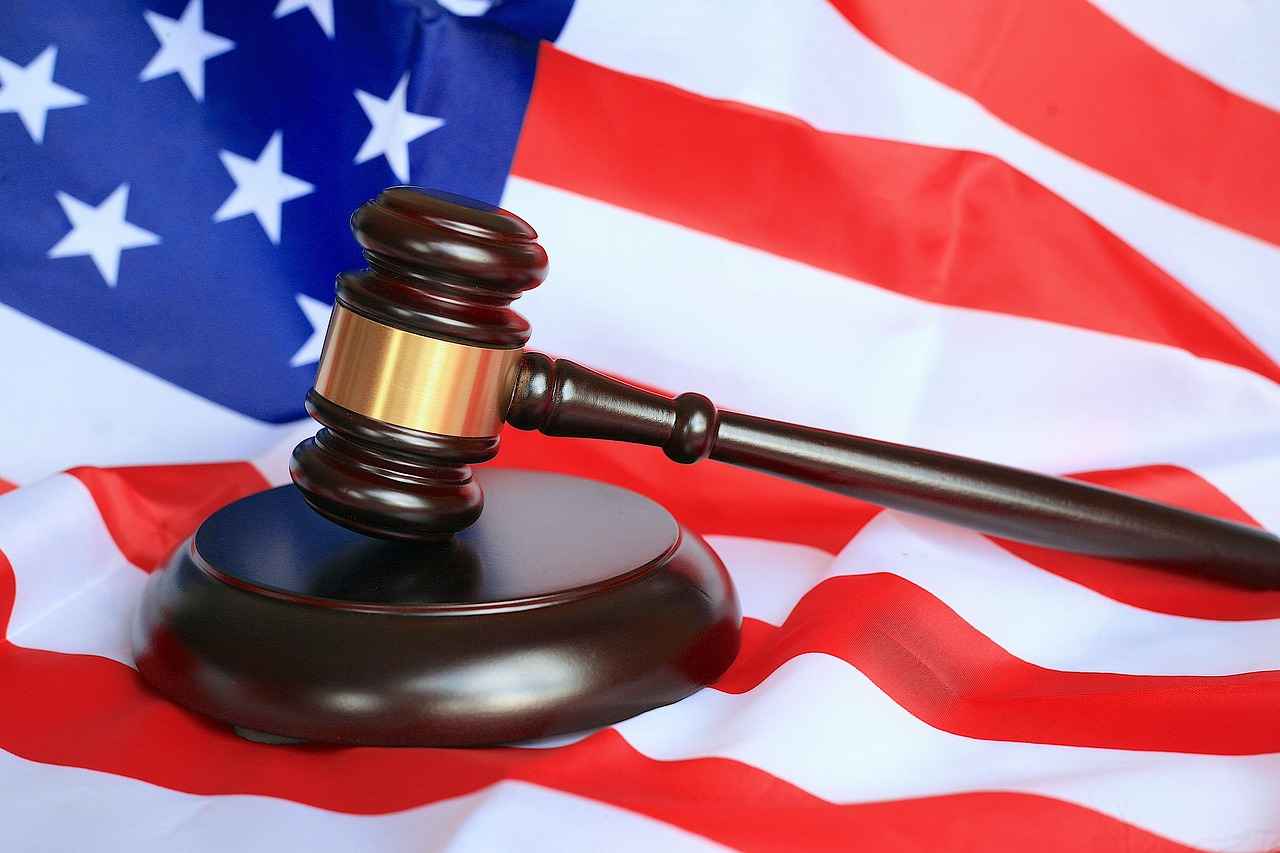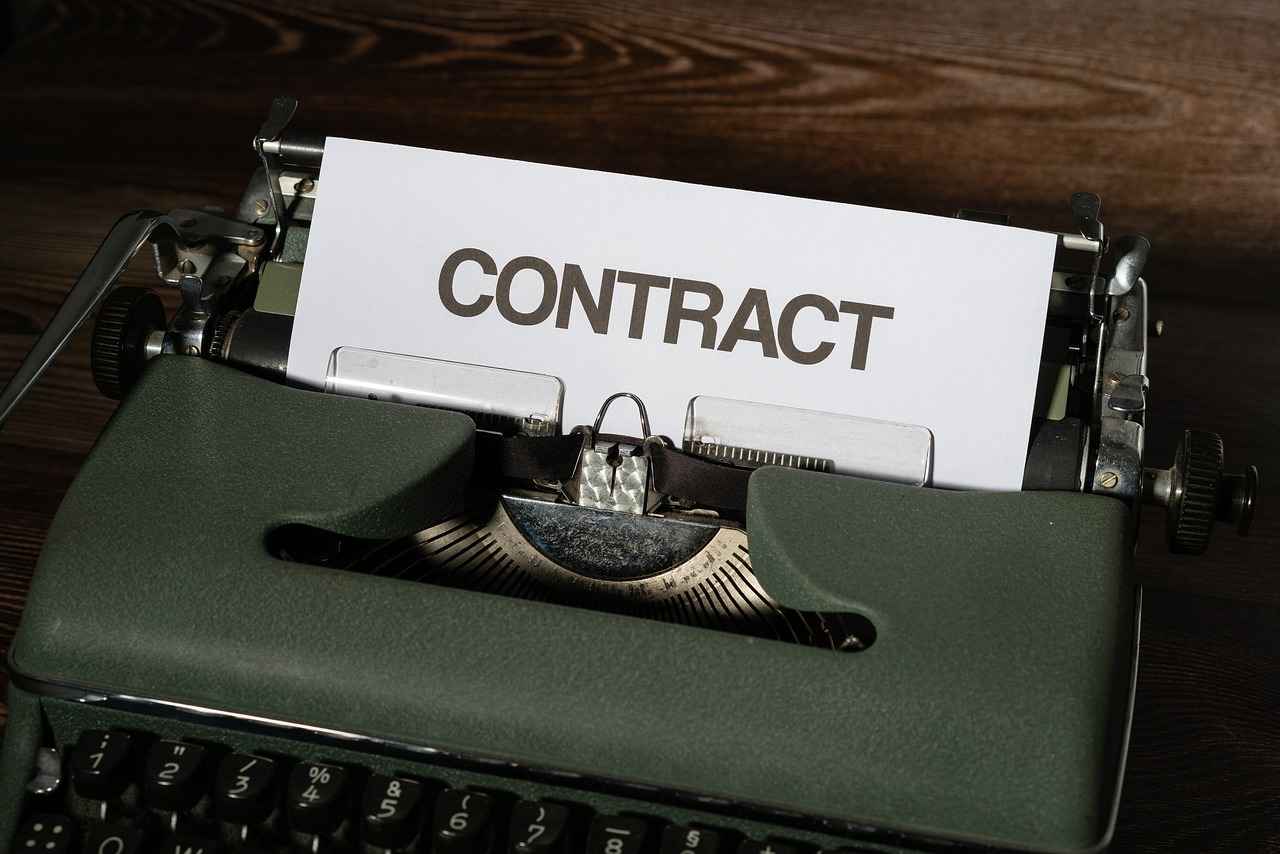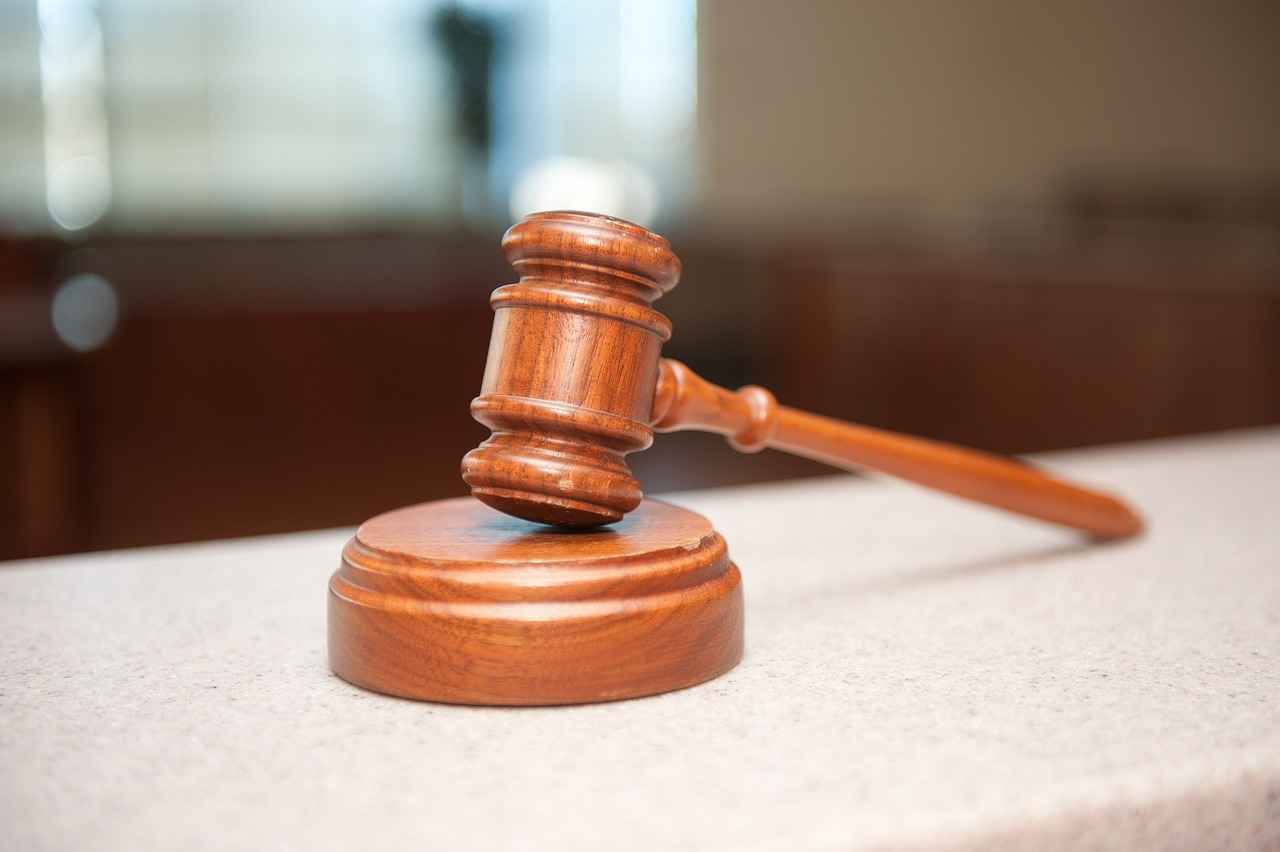This article explores various legal cases prevalent in the U.S. and provides expert guidance on finding qualified attorneys in Bakersfield, California.
Understanding Personal Injury Cases
Personal injury cases are among the most common legal issues in the United States. They arise when individuals sustain injuries due to another party’s negligence or intentional actions. In such cases, securing a skilled personal injury attorney is crucial, as they can help you navigate the complexities of filing a claim, gathering evidence, and negotiating settlements. Look for attorneys with a proven track record in personal injury cases, and consider checking their online reviews and testimonials.
Medical Malpractice: What You Need to Know
Medical malpractice involves negligence by healthcare professionals that results in harm to patients. Cases can be complex, requiring an attorney with specialized knowledge in medical laws and standards. When searching for a medical malpractice attorney, ensure they have experience in similar cases and are well-versed in medical terminology. It can also be beneficial to seek referrals from trusted medical professionals or legal associations.
Breach of Contract: Legal Implications
Breach of contract cases occur when one party fails to fulfill their obligations under a legally binding agreement. To effectively handle such disputes, it is vital to find an attorney with a strong background in contract law. Look for lawyers who have successfully managed similar cases and are familiar with the specific laws governing contracts in your state. Online legal directories can be a useful resource for finding qualified attorneys.
Navigating Property Disputes
Property disputes can arise from various issues, including ownership conflicts, boundary disagreements, and tenant rights. An experienced real estate attorney can help you resolve these matters through negotiation or litigation. When seeking representation, check the attorney’s experience in property law and their success rate in similar cases. Additionally, consider their familiarity with local real estate regulations.
Landlord-Tenant Disputes: Legal Rights and Responsibilities
Landlord-tenant disputes often stem from lease agreements, property conditions, or eviction processes. Understanding your rights as a tenant or landlord is essential, and hiring an attorney who specializes in landlord-tenant law can ensure fair treatment. Look for attorneys who can explain your rights clearly and have a history of resolving disputes amicably.
Defamation Cases: Understanding Libel and Slander
Defamation cases involve false statements that harm an individual’s reputation, categorized into libel (written) and slander (spoken). Finding a lawyer experienced in media and communication law is vital for navigating these cases effectively. Seek attorneys with a strong background in handling defamation claims and who can provide a clear strategy for your case.
Employment Disputes: Protecting Your Rights
Employment disputes can include wrongful termination, discrimination, and harassment claims. A specialized employment attorney can provide guidance and representation in these sensitive matters. When searching for a lawyer, consider their experience with employment law and their success in similar cases. It’s also beneficial to look for attorneys who are members of relevant professional associations.
Product Liability: Holding Manufacturers Accountable
Product liability cases arise when defective products cause harm to consumers. Finding an attorney with experience in consumer protection laws is key to a successful claim. Look for lawyers who have successfully handled product liability cases and are familiar with the regulations governing product safety. Online reviews and case results can provide insight into their expertise.
Wrongful Death Claims: Seeking Justice
Wrongful death claims occur when negligence leads to someone’s death. An empathetic attorney can help families seek justice and compensation during difficult times. When searching for a wrongful death attorney, prioritize those who have experience in similar cases and can demonstrate a compassionate approach to their clients.
Class Action Lawsuits: Collective Legal Action
Class action lawsuits allow groups of people to sue for shared grievances, often against large corporations. An attorney experienced in class actions can effectively represent your interests. Look for lawyers who have a successful history of managing class action cases and who can provide clear communication about the process and potential outcomes.
Criminal Cases: Assault, Battery, and More
Criminal cases, including assault and battery, require skilled legal representation. Finding a criminal defense attorney is crucial for protecting your rights and ensuring a fair trial. When selecting a criminal attorney, consider their experience with similar cases, their knowledge of criminal law, and their track record in court. Personal referrals and online reviews can also be helpful.
Family Law: Divorce and Child Custody Issues
Family law encompasses divorce, child custody, and support matters. A compassionate attorney can guide you through emotionally charged legal processes. When looking for a family law attorney, prioritize those with experience in family court and a strong understanding of state laws governing custody and support. Client testimonials and case results can provide valuable insights.
Bankruptcy and Financial Legal Issues
Bankruptcy cases involve financial distress and require specialized legal assistance. An experienced bankruptcy attorney can help navigate the complexities of filing and discharge. When searching for a bankruptcy lawyer, consider their experience with your specific type of bankruptcy (Chapter 7, Chapter 13) and their success in helping clients achieve favorable outcomes.

Understanding Personal Injury Cases
Personal injury cases are a significant aspect of the legal landscape in the United States, arising when individuals suffer harm due to the negligence or wrongful actions of another party. These cases can encompass a wide range of incidents, from car accidents to slip and fall accidents, workplace injuries, and even medical malpractice. The impact of such injuries can be profound, affecting not only the victim’s physical health but also their emotional well-being and financial stability.
When pursuing a personal injury claim, it is crucial to have a skilled attorney by your side. The right legal representation can profoundly influence the outcome of your case. Here are some key considerations and strategies for finding the best personal injury attorney:
- Experience and Expertise: Look for attorneys who specialize in personal injury law. Their experience in handling similar cases means they will be familiar with the nuances of the law and the tactics used by insurance companies.
- Track Record: Evaluate the attorney’s history of successful settlements and verdicts. An attorney with a proven track record is more likely to secure a favorable outcome for your case.
- Client Reviews: Research online reviews and testimonials from former clients. This feedback can provide insight into the attorney’s communication style, professionalism, and ability to deliver results.
- Initial Consultation: Many personal injury attorneys offer free consultations. Use this opportunity to discuss your case and assess whether the attorney is a good fit for your needs.
- Contingency Fees: Most personal injury attorneys work on a contingency fee basis, meaning they only get paid if you win your case. Ensure you understand their fee structure before signing any agreements.
In addition to these factors, it is essential to be aware of red flags when hiring an attorney. Avoid attorneys who make unrealistic promises or guarantee outcomes, as these claims can be misleading. Furthermore, be cautious of attorneys who pressure you into making quick decisions or signing contracts without fully explaining the terms.
Ultimately, a successful personal injury claim hinges on your ability to find a competent and trustworthy attorney who can advocate for your rights. By conducting thorough research and considering the factors outlined above, you can increase your chances of securing the compensation you deserve for your injuries.

Medical Malpractice: What You Need to Know
Medical malpractice is a serious issue that affects countless patients each year in the United States. It occurs when a healthcare professional fails to provide the standard of care expected in the medical community, leading to injury or harm to a patient. Understanding the nuances of medical malpractice is essential for anyone seeking justice in such cases.
When you suspect that you have been a victim of medical malpractice, the first step is to identify whether negligence has occurred. This can involve reviewing your medical records, seeking a second opinion, and understanding the specific actions or omissions that led to your injury. Common examples of medical malpractice include misdiagnosis, delayed diagnosis, surgical errors, and improper treatment.
Finding a qualified attorney experienced in medical malpractice is crucial for navigating the complex legal landscape. Here are some key considerations:
- Experience: Look for attorneys who specialize in medical malpractice law and have a proven track record of successful cases. Their experience will be invaluable in understanding the intricacies of your case.
- Credentials: Check for credentials such as board certifications, memberships in legal organizations, and any awards or recognitions in the field of medical malpractice.
- Client Reviews: Research online reviews and testimonials from previous clients. This can provide insight into their reputation and how they handle cases.
- Consultation: Schedule a consultation to discuss your case. This meeting will help you gauge the attorney’s understanding of your situation and their approach to handling your case.
- Contingency Fees: Many medical malpractice attorneys work on a contingency fee basis, meaning they only get paid if you win your case. Ensure you understand their fee structure before proceeding.
In addition to these factors, be aware of potential red flags when hiring a medical malpractice attorney. Avoid lawyers who promise guaranteed outcomes, as no attorney can ensure a specific result. Also, be cautious of those who rush you into signing a contract without fully explaining the details of your case and their strategy.
Ultimately, navigating a medical malpractice claim can be daunting, but with the right attorney by your side, you can pursue justice and compensation for your injuries. Take the time to research and choose wisely, as the outcome of your case can significantly impact your life.

Breach of Contract: Legal Implications
A breach of contract occurs when one or more parties involved in a legally binding agreement fail to fulfill their obligations as stipulated in the contract. Such breaches can lead to significant legal consequences and can take various forms, including partial performance, delayed performance, or non-performance. Understanding these implications is crucial for anyone entering into a contractual agreement.
In the United States, breach of contract cases are common in various sectors, including business, real estate, and employment. When a breach occurs, the non-breaching party is typically entitled to seek damages or specific performance, which may involve legal proceedings to enforce the terms of the contract. The amount of damages awarded can vary based on the nature of the breach and the specific terms outlined in the contract.
To effectively navigate these legal waters, it is essential to find a lawyer with a strong background in contract law. Here are some expert tips on how to find the right attorney for your breach of contract case:
- Look for Specialization: Seek attorneys who specialize in contract law or have significant experience handling breach of contract cases. Their expertise will be invaluable in assessing the specifics of your situation.
- Check Credentials: Verify the attorney’s credentials, including their education, bar admissions, and any relevant certifications. Membership in professional organizations, such as the American Bar Association, can also be a positive sign.
- Read Reviews: Look for client reviews and testimonials to gauge the attorney’s reputation and effectiveness. Online platforms like Avvo or Martindale-Hubbell offer ratings and reviews that can provide insights into an attorney’s track record.
- Consultation: Schedule initial consultations with potential attorneys. This meeting allows you to discuss your case, evaluate their communication style, and determine if you feel comfortable working with them.
- Ask About Fees: Inquire about the attorney’s fee structure. Some attorneys may work on a contingency basis, while others may charge hourly rates or flat fees. Understanding the costs upfront can help you make an informed decision.
When dealing with a breach of contract, it is also important to be aware of red flags that may indicate a less-than-reputable attorney. These include:
- High Pressure Sales Tactics: Be wary of attorneys who pressure you to sign contracts or make quick decisions without giving you time to think.
- Lack of Transparency: An attorney who is not clear about their fees, processes, or how they plan to handle your case should be approached with caution.
- Poor Communication: If an attorney is difficult to reach or does not respond to your inquiries in a timely manner, it may be a sign of future issues in your case.
In conclusion, finding the right attorney for a breach of contract case requires careful consideration and research. By focusing on specialization, credentials, client reviews, and communication, you can identify a legal professional who can effectively represent your interests and help you navigate the complexities of contract law.

Navigating Property Disputes
Property disputes can arise from a variety of issues, including ownership claims, boundary disagreements, and tenant rights. These disputes can be complex and emotionally charged, often requiring the expertise of a knowledgeable attorney to navigate effectively. Whether the conflict involves two neighbors arguing over property lines or a tenant challenging an eviction, having legal representation can make a significant difference in the outcome.
One of the most common types of property disputes involves ownership issues. This can occur when multiple parties claim ownership of the same property or when there are disputes over inheritance rights. In such cases, it is crucial to gather all relevant documentation, including deeds and wills, and consult with an attorney who specializes in property law. They can help clarify ownership rights and guide you through the legal process to resolve the dispute.
Boundary disputes are another frequent source of conflict among property owners. These disputes often arise from unclear property lines, which can lead to misunderstandings and conflicts. An attorney can assist in obtaining surveys and other evidence to establish clear boundaries, potentially avoiding the need for lengthy litigation.
Tenant rights are also a significant area of property disputes. Issues such as eviction, security deposits, and lease violations can lead to conflicts between landlords and tenants. Understanding tenant rights is essential, and having an attorney who is well-versed in landlord-tenant law can help ensure that your rights are protected. They can negotiate on your behalf or represent you in court if necessary.
When seeking legal representation for property disputes, it is essential to consider several factors:
- Experience: Look for attorneys who specialize in property law and have a proven track record in handling similar cases.
- Reputation: Research online reviews and testimonials to gauge the attorney’s reputation in the community.
- Communication: Choose an attorney who communicates clearly and keeps you informed throughout the process.
- Fees: Discuss fees upfront to avoid any surprises later. Some attorneys may work on a contingency basis, while others charge hourly rates.
In conclusion, navigating property disputes can be challenging, but with the right legal assistance, individuals can effectively resolve their issues. Whether you are dealing with ownership claims, boundary disputes, or tenant rights, a knowledgeable attorney can provide the guidance needed to achieve a favorable outcome.

Landlord-Tenant Disputes: Legal Rights and Responsibilities
Landlord-tenant disputes are a common occurrence in the rental market, often stemming from misunderstandings or disagreements regarding lease agreements and property conditions. It is crucial for both landlords and tenants to understand their legal rights and responsibilities to navigate these disputes effectively.
One of the primary sources of conflict is the lease agreement. This legally binding document outlines the terms of the rental arrangement, including rent amount, security deposits, maintenance responsibilities, and rules regarding property use. When either party fails to adhere to these terms, disputes can arise. For example, if a landlord does not maintain the property in a habitable condition, tenants may have grounds to withhold rent or seek damages. Conversely, if a tenant violates lease terms, such as subletting without permission, landlords may have the right to terminate the lease.
Understanding the local laws governing landlord-tenant relationships is essential. Each state has its own regulations regarding rental properties, including eviction processes, security deposits, and tenant rights. For instance, in California, landlords must provide “just cause” for evictions, which includes non-payment of rent or violation of lease terms. Tenants should familiarize themselves with these laws to protect their rights.
In addition to knowing the law, hiring an experienced attorney who specializes in landlord-tenant disputes can provide significant advantages. An attorney can offer guidance on the legal process, help negotiate settlements, and represent clients in court if necessary. When searching for a lawyer, consider the following:
- Experience: Look for attorneys with a proven track record in landlord-tenant law.
- Reputation: Research online reviews and ask for referrals from friends or family.
- Credentials: Verify their qualifications, including bar association membership and any relevant certifications.
- Consultation: Many attorneys offer free initial consultations, which can help you gauge their expertise and approach.
Red flags to avoid include attorneys who make unrealistic promises about outcomes or those who lack transparency regarding fees. Trust your instincts; if something feels off, it may be wise to seek a second opinion.
In conclusion, landlord-tenant disputes can be complex, but understanding your rights and responsibilities is the first step toward resolution. By hiring a qualified attorney and being informed about local laws, both landlords and tenants can ensure fair treatment and a more harmonious rental experience.

Defamation Cases: Understanding Libel and Slander
Defamation is a legal term that refers to the act of making false statements about an individual or entity that can harm their reputation. It is crucial to understand that defamation can manifest in two forms: libel, which involves written statements, and slander, which pertains to spoken words. Both forms can have serious consequences for the victim, affecting their personal and professional life significantly.
When dealing with defamation cases, it is essential to find a lawyer who specializes in media and communication law. These legal professionals are well-versed in the intricacies of defamation laws and can help navigate the complexities of the legal system. Here are some practical tips for finding the right attorney for your defamation case:
- Research and Referrals: Start by asking friends, family, or colleagues for recommendations. Additionally, online platforms such as Avvo and FindLaw can provide listings of attorneys specializing in defamation law.
- Check Credentials: Look for lawyers who have experience specifically in handling defamation cases. Verify their credentials, including their education, years of practice, and any relevant certifications.
- Review Case Histories: A good attorney will have a history of successful outcomes in defamation cases. Ask for case studies or examples of previous work to gauge their effectiveness.
- Consultations: Many lawyers offer free initial consultations. Use this opportunity to discuss your case and assess their understanding of defamation law. Pay attention to how they communicate and whether they seem genuinely interested in helping you.
- Discuss Fees: Understanding the fee structure is crucial. Some attorneys work on a contingency basis, meaning they only get paid if you win your case, while others charge hourly rates. Ensure you have clarity on this aspect before proceeding.
In addition to these steps, it is important to be aware of common red flags when hiring a lawyer for a defamation case:
- Attorneys who guarantee outcomes should be approached with caution, as no lawyer can predict the outcome of a legal case with certainty.
- Be wary of lawyers who pressure you into making quick decisions without fully discussing the implications of your case.
- Watch for a lack of communication or responsiveness during initial consultations, as this may indicate how they will handle your case moving forward.
Defamation cases can be complex and emotionally charged, making it vital to have a skilled attorney by your side. By following these guidelines, you can increase your chances of finding a qualified lawyer who will advocate for your rights and help you seek justice.

Employment Disputes: Protecting Your Rights
Employment disputes can arise in various forms, including wrongful termination, discrimination, and harassment. These issues can deeply affect an individual’s career, emotional well-being, and financial stability. Understanding your rights and the legal landscape surrounding employment law is essential for anyone facing these challenges.
One of the most common types of employment disputes is wrongful termination. This occurs when an employee is fired for reasons that violate federal or state laws, such as discrimination based on race, gender, or age. If you believe you have been wrongfully terminated, it is crucial to seek the assistance of a specialized attorney who can help you evaluate your case and determine the best course of action.
Another prevalent issue is employment discrimination, which can take many forms, including gender discrimination, racial discrimination, and disability discrimination. Employees who experience discrimination may face barriers to advancement, unequal pay, or hostile work environments. In these situations, having a knowledgeable attorney can provide you with the necessary guidance to navigate the complexities of your case.
When searching for a qualified attorney to handle your employment dispute, consider the following factors:
- Experience: Look for an attorney who specializes in employment law and has a track record of handling cases similar to yours.
- Credentials: Verify their educational background, licenses, and any additional certifications in employment law.
- Reputation: Research online reviews and testimonials from previous clients to gauge their satisfaction with the attorney’s services.
- Consultation: Many attorneys offer free initial consultations. Use this opportunity to discuss your case and assess whether you feel comfortable working with them.
It’s also important to be aware of red flags when selecting an attorney. Avoid those who make unrealistic promises about the outcome of your case or seem more interested in their fees than your well-being. Trust your instincts; if something feels off, it’s okay to seek out other options.
In major cities like New York City, Los Angeles, and Chicago, there are numerous resources available to help you find the right legal representation. Online platforms such as Avvo and FindLaw allow you to filter attorneys based on their specialties and client reviews. Additionally, local bar associations often provide referral services that can connect you with qualified attorneys in your area.
In conclusion, navigating employment disputes can be challenging, but understanding your rights and knowing how to find the right attorney can significantly impact the outcome of your case. Always take the time to research and consult with potential lawyers to ensure that you are making informed decisions about your legal representation.

Product Liability: Holding Manufacturers Accountable
Product liability cases represent a critical area of law, focusing on the responsibility of manufacturers and sellers to ensure that their products are safe for consumer use. When a defective product causes injury or harm, the affected individuals have the right to seek compensation. Understanding the nuances of product liability law is essential for anyone considering a claim.
Types of Product Defects
- Design Defects: These occur when the product’s design is inherently unsafe, making it dangerous even when manufactured correctly.
- Manufacturing Defects: These happen during the production process, resulting in a product that deviates from its intended design and becomes hazardous.
- Marketing Defects: This involves inadequate warnings or instructions that fail to inform consumers about potential risks associated with the product.
When pursuing a product liability claim, it is crucial to establish that the defect was the direct cause of the injury. This often requires substantial evidence, including expert testimony, medical records, and documentation of the product’s history. Therefore, hiring an attorney with experience in consumer protection laws is vital.
How to Find a Qualified Product Liability Attorney
Finding the right lawyer can significantly affect the outcome of your case. Here are some practical steps to consider:
- Research Online: Utilize legal directories such as Avvo or FindLaw to locate attorneys specializing in product liability. Look for reviews and ratings to gauge their reputation.
- Check Credentials: Ensure the attorney has a strong background in personal injury law, particularly in product liability cases. Membership in relevant legal associations can also be a positive indicator.
- Schedule Consultations: Most attorneys offer free initial consultations. Use this opportunity to discuss your case and assess their expertise and communication style.
- Ask About Experience: Inquire about their past cases, particularly those similar to yours. A successful track record in product liability claims can provide reassurance.
- Evaluate Communication: Choose an attorney who communicates clearly and promptly. A good lawyer should be willing to explain the legal process and keep you informed throughout your case.
Red Flags to Avoid
- Lack of Specialization: Avoid attorneys who do not specialize in product liability or personal injury law, as they may lack the necessary knowledge and experience.
- High Pressure Tactics: Be wary of lawyers who pressure you to sign contracts or make quick decisions without fully understanding your case.
- Unclear Fee Structures: Ensure you understand how the attorney charges for their services. Look for clarity on contingency fees and any additional costs that may arise.
By taking these steps, you can improve your chances of finding a qualified attorney who will advocate effectively on your behalf in product liability cases. This will not only help you seek justice but also hold manufacturers accountable for their products.

Wrongful Death Claims: Seeking Justice
Wrongful death claims represent a significant area of personal injury law, arising when an individual’s death is caused by the negligence or wrongful act of another party. These claims are not only about seeking financial compensation but also about holding responsible parties accountable for their actions. The emotional toll on families can be profound, making it essential for them to navigate this complex legal landscape with the help of a qualified attorney.
When pursuing a wrongful death claim, it is crucial to understand the elements that must be proven in court. First, you must establish that the deceased was a victim of negligence or intentional harm. This involves demonstrating that the responsible party had a duty of care towards the deceased, breached that duty, and that the breach directly caused the death.
Families often face overwhelming grief during these times, which can complicate their ability to make informed decisions. Therefore, finding an empathetic attorney who specializes in wrongful death cases can be invaluable. Here are some key factors to consider when searching for legal representation:
- Experience and Specialization: Look for attorneys who have a proven track record in handling wrongful death claims. Their experience in similar cases can significantly influence the outcome.
- Client Testimonials: Research online reviews and testimonials from previous clients. Positive feedback can provide insight into the attorney’s abilities and approach.
- Initial Consultations: Many attorneys offer free consultations. Use this opportunity to gauge their understanding of your case and their approach to handling it.
- Communication Skills: An effective attorney should be able to communicate clearly and compassionately, ensuring that you understand the legal process and your options.
- Fee Structure: Discuss the attorney’s fee structure upfront. Many wrongful death attorneys work on a contingency fee basis, meaning they only get paid if you win your case.
In wrongful death cases, the types of damages that may be pursued include medical expenses incurred before death, lost wages, loss of companionship, and funeral costs. Understanding what damages you may be entitled to is crucial, and a knowledgeable attorney can help quantify these losses effectively.
Additionally, wrongful death claims often have strict time limits, known as statutes of limitations, which vary by state. Therefore, it is imperative to act quickly and consult with an attorney as soon as possible after the incident.
In summary, wrongful death claims are a complex area of law that requires specialized knowledge and a compassionate approach. By taking the time to find a qualified attorney, families can ensure that they receive the justice and compensation they deserve during one of the most challenging times in their lives.

Class Action Lawsuits: Collective Legal Action
Class action lawsuits serve as a powerful legal mechanism that enables a group of individuals to collectively address grievances against a common defendant, often a large corporation. These lawsuits are particularly effective in situations where individual claims may be too small to warrant separate legal action but collectively represent significant harm. Such cases can arise in various contexts, including consumer fraud, environmental damage, and employment discrimination.
When pursuing a class action lawsuit, it is crucial to engage an attorney who specializes in this area of law. Experienced class action lawyers possess the necessary skills to navigate the complexities of these cases, which often involve intricate legal procedures and substantial financial stakes. They can help ensure that your rights are protected and that you receive fair compensation for your damages.
To find the best attorney for a class action lawsuit, consider the following steps:
- Research Credentials: Look for attorneys with a proven track record in handling class action cases. Check their educational background, years of experience, and any relevant certifications.
- Review Past Cases: Examine the outcomes of previous class action lawsuits the attorney has managed. Successful settlements or verdicts can indicate their capability in this specialized field.
- Seek Referrals: Ask for recommendations from friends, family, or colleagues who may have experience with class action lawsuits. Personal referrals can often lead to trustworthy legal representation.
- Utilize Legal Platforms: Websites like Avvo, Martindale-Hubbell, and FindLaw provide directories of attorneys, along with reviews and ratings from former clients. These platforms can help you identify qualified lawyers in your area.
- Initial Consultations: Schedule consultations with potential attorneys to discuss your case. This meeting allows you to gauge their understanding of class action law and their approach to your specific situation.
While searching for an attorney, be mindful of red flags that may indicate a less-than-reputable lawyer. These include:
- Promises of guaranteed outcomes, which can be unrealistic in the legal field.
- Lack of transparency regarding fees and costs associated with the lawsuit.
- Negative reviews or a history of disciplinary actions.
- Reluctance to provide references or examples of past successes.
Class action lawsuits can be a lengthy process, often taking years to resolve. Therefore, choosing an attorney who not only has the right qualifications but also demonstrates a commitment to your case is essential. A skilled lawyer will guide you through the legal landscape, advocating for your rights while managing the complexities of the litigation process.
In major metropolitan areas like New York City, Los Angeles, and Chicago, the competition among attorneys can be fierce. It is important to take your time in selecting a lawyer who not only meets the qualifications but also aligns with your personal values and communication style. A good attorney will keep you informed throughout the process, ensuring that you feel supported and empowered as you pursue justice.

Criminal Cases: Assault, Battery, and More
Criminal cases encompass a wide range of offenses, including assault and battery, which necessitate skilled legal representation. When facing criminal charges, it is imperative to work with a qualified criminal defense attorney who can safeguard your rights and ensure you receive a fair trial. The legal landscape can be daunting, and having an experienced advocate by your side can make a significant difference in the outcome of your case.
In the realm of criminal law, the terms “assault” and “battery” are often used interchangeably, but they refer to distinct actions. Assault typically involves the threat of harm or an attempt to inflict injury, while battery refers to the actual physical act of causing harm to another individual. Both offenses can carry serious legal consequences, including fines and imprisonment.
When searching for a criminal defense attorney, consider the following steps:
- Research Local Attorneys: Start by looking for attorneys who specialize in criminal defense in your area. Websites like Avvo and FindLaw can provide valuable insights into lawyers’ backgrounds and client reviews.
- Check Credentials: Ensure the attorney has relevant experience, particularly with cases similar to yours. Look for certifications, bar association memberships, and any specializations in criminal law.
- Schedule Consultations: Many attorneys offer free initial consultations. Use this opportunity to discuss your case, gauge their understanding, and assess whether you feel comfortable working with them.
- Ask About Case Strategy: Inquire how they would approach your case. A good attorney will outline potential defenses, plea options, and the overall legal strategy tailored to your situation.
- Evaluate Communication: Effective communication is vital in legal matters. Make sure the attorney is responsive and willing to keep you informed throughout the process.
It’s also important to be aware of potential red flags when hiring a criminal defense attorney:
- Lack of Experience: Avoid attorneys who do not have substantial experience in criminal law, as they may not be equipped to handle the complexities of your case.
- High Pressure Tactics: Be wary of attorneys who pressure you into making quick decisions or who guarantee specific outcomes, as this can indicate a lack of integrity.
- Poor Reviews: Check online reviews and ratings. Consistently negative feedback can be a sign of inadequate representation.
In major metropolitan areas like New York City, Los Angeles, and Chicago, the competition among attorneys can be fierce. Utilize local bar association resources, legal aid organizations, and community referrals to find reputable lawyers. Additionally, consider reaching out to friends or family who may have had similar legal experiences.
Ultimately, the goal is to find a competent attorney who not only understands the intricacies of criminal law but also prioritizes your best interests. With the right representation, you can navigate the complexities of your case and work towards the most favorable outcome.

Family Law: Divorce and Child Custody Issues
Family law is a vital area of legal practice that addresses various aspects of familial relationships, notably divorce, child custody, and support matters. Navigating these emotionally charged issues requires not only legal expertise but also a compassionate approach.
When facing a divorce, individuals often encounter complex emotional and financial challenges. Engaging with a skilled attorney is crucial for ensuring that your interests are adequately represented. An experienced family law attorney can help you understand the legal implications of divorce, including asset division, alimony, and the impact on children.
In terms of child custody, the stakes are incredibly high. Courts prioritize the best interests of the child, which can lead to contentious disputes between parents. A knowledgeable attorney can assist in navigating custody arrangements, visitation rights, and child support obligations. They can provide guidance on how to present your case effectively, ensuring that your voice is heard in court.
Furthermore, the emotional toll of these legal processes cannot be understated. A compassionate attorney not only provides legal support but also offers a listening ear during a challenging time. They can help you manage stress and make informed decisions that will affect your family’s future.
When searching for a family law attorney, consider the following tips:
- Research Credentials: Look for attorneys who specialize in family law and have a proven track record in handling cases similar to yours.
- Read Reviews: Check online reviews and testimonials to gauge the experiences of previous clients.
- Consultation: Many attorneys offer free consultations. Use this opportunity to assess their understanding of your case and their approach to legal representation.
- Communication: Choose an attorney who communicates clearly and promptly. You want someone who will keep you informed throughout the process.
- Red Flags: Be wary of attorneys who make unrealistic promises or pressure you into decisions without fully explaining the implications.
In summary, family law encompasses critical issues that can have lasting effects on your life and the lives of your loved ones. By engaging a knowledgeable and empathetic attorney, you can navigate the complexities of divorce and child custody with greater confidence and clarity.

Bankruptcy and Financial Legal Issues
Bankruptcy is a legal process that provides individuals and businesses relief from overwhelming debt. It is often a last resort for those facing financial distress, and navigating this complex system requires specialized legal assistance. An experienced bankruptcy attorney can be an invaluable resource in understanding the intricacies of filing for bankruptcy and the subsequent discharge of debts.
When considering bankruptcy, it’s essential to first understand the different types available, such as Chapter 7 and Chapter 13. Chapter 7 allows for the liquidation of non-exempt assets to pay creditors, while Chapter 13 enables individuals to reorganize their debts and create a repayment plan. Each type has its own eligibility requirements and implications for your financial future.
Finding the right bankruptcy attorney is crucial. Here are some proven methods to identify qualified legal professionals in this field:
- Referrals: Ask friends, family, or financial advisors for recommendations. Personal experiences can often lead you to trustworthy attorneys.
- Online Reviews: Websites like Avvo or Martindale-Hubbell provide ratings and reviews of attorneys based on client feedback and peer evaluations.
- Bar Association Directories: State bar associations often have directories of licensed attorneys, including those specializing in bankruptcy law.
When evaluating potential attorneys, look for the following credentials:
- Experience: Ensure the attorney has significant experience specifically in bankruptcy cases.
- Certifications: Some attorneys may hold certifications in bankruptcy law, indicating a higher level of expertise.
- Initial Consultation: Many bankruptcy attorneys offer a free initial consultation. Use this opportunity to assess their knowledge and approach.
Be wary of red flags when selecting a bankruptcy attorney:
- Unclear Fee Structures: Avoid attorneys who are not transparent about their fees or who charge exorbitant upfront costs.
- Lack of Communication: If an attorney is difficult to reach or does not return calls promptly, it may indicate a lack of commitment to your case.
- Pressure Tactics: Be cautious of attorneys who pressure you to file for bankruptcy without thoroughly discussing your situation and alternatives.
In addition to finding the right attorney, it’s essential to prepare for the bankruptcy process. Gather all necessary financial documents, including income statements, tax returns, and a list of debts and assets. This information will be crucial for your attorney to develop a comprehensive strategy tailored to your needs.
Ultimately, bankruptcy can provide a fresh start for those burdened by debt, but it is not without its challenges. Working with a knowledgeable attorney can help ensure that you navigate this process effectively, protecting your rights and maximizing your financial recovery.
Frequently Asked Questions
- What should I look for in a personal injury attorney?
When searching for a personal injury attorney, consider their experience, track record, and client reviews. You want someone who is not only knowledgeable but also compassionate and willing to fight for your rights.
- How can I prove medical malpractice?
To prove medical malpractice, you must establish that the healthcare provider failed to meet the standard of care, which directly resulted in harm. This often requires expert testimony and thorough documentation of your medical history.
- What are my rights in a landlord-tenant dispute?
As a tenant, you have rights regarding the condition of your rental property, privacy, and proper notice before eviction. Familiarizing yourself with local tenant laws can empower you to address disputes effectively.
- What is a class action lawsuit?
A class action lawsuit allows a group of people with similar grievances to collectively sue a defendant, usually a corporation. This can be more efficient and cost-effective than individual lawsuits.
- How do I know if I need a bankruptcy attorney?
If you’re struggling to pay debts, facing foreclosure, or dealing with creditor harassment, consulting a bankruptcy attorney can help you understand your options and determine if filing for bankruptcy is the right choice for you.














